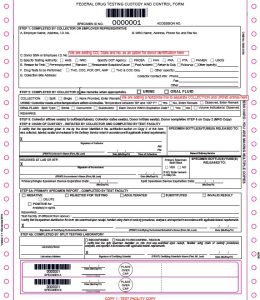 New regulations issued by the Occupational Safety and Health Administration (OSHA) regarding Recording and Reporting Occupational Injuries and Illnesses became effective on December 1, 2016. The regulations prohibit employers from retaliating against employees for reporting workplace injuries and illnesses (OSHA 29 CFR 1904). Although drug and alcohol testing was not mentioned in the Final Rule itself, OSHA noted in the Preamble that in some circumstances post-accident drug and alcohol testing could be a retaliatory practice. Few, if any, regulation changes of late have caused more confusion for employers and their drug testing policies and procedures than this rulemaking. The information below is meant to help clarify some misconceptions.
New regulations issued by the Occupational Safety and Health Administration (OSHA) regarding Recording and Reporting Occupational Injuries and Illnesses became effective on December 1, 2016. The regulations prohibit employers from retaliating against employees for reporting workplace injuries and illnesses (OSHA 29 CFR 1904). Although drug and alcohol testing was not mentioned in the Final Rule itself, OSHA noted in the Preamble that in some circumstances post-accident drug and alcohol testing could be a retaliatory practice. Few, if any, regulation changes of late have caused more confusion for employers and their drug testing policies and procedures than this rulemaking. The information below is meant to help clarify some misconceptions.
Post-accident drug and alcohol testing is still allowed. However, there must be a “reasonable possibility” that drug or alcohol use caused or contributed to the reported injury or illness to justify requiring the employee to submit to a drug and/or alcohol test. Blanket requirements for post-injury or post-accident drug or alcohol testing could be considered a violation by OSHA. Examples of possible violations include requiring testing after a report of a repetitive strain injury or a bee sting.
Employers do not have to specifically suspect drug use by an individual employee to drug test, but there must be a reasonable basis to investigate whether drug or alcohol use may have caused or contributed to an injury or illness. OSHA’s regulations do not apply to mandatory Federal (e.g., DOT) or state workers’ compensation testing provisions or testing under a state drug-free workplace program to comply with workers’ compensation provisions. Furthermore, it does not apply to pre-employment, reasonable suspicion, random, return-to-duty, or follow-up testing.
OSHA is clear – post-accident drug testing is not only permissible, it is still a reasonable and acceptable workplace safety practice. Employers should take precautions to ensure that their workplaces are safe, and drug testing is an important part of those precautions.
Key Points for OSHA-Regulated Employers
- Employers can and should continue to use post-accident drug screening
- OSHA will not and cannot issue citations for drug testing required under a mandatory state law, a voluntary drug free workplace law, or a federally-regulated program
- The OSHA regulation requires a “reasonable basis” for employers to perform a post-accident drug test and applies solely to post-accident tests
- To verify a drug test is meant for OSHA-regulated, post-accident testing, consider the following factors: Whether the employer had a reasonable basis for concluding that drug use could have contributed to the injury or illness (and therefore that the result of the drug test could provide insight into why the injury or illness occurred)
- Whether other employees involved in the incident that caused the injury or illness were also drug tested
- Whether the employer has a heightened interest in determining if drug use could have contributed to the injury or illness due the hazardous nature of the work being performed when the injury or illness occurred
What Do OSHA-Regulated Employers Need to Do?
- Review your drug testing policy, especially for post-accident testing, to ensure compliance with the new OSHA guidance
- Remove any blanket testing rules for OSHA post-accident testing and make certain testing occurs only when there is a reasonable basis to assume drug use contributed to an accident or injury
- Review your state laws. State laws can be a central part of an employer policy. Adherence to drug-free workplace program and state worker’s compensation laws will not change and OSHA will not find a violation of these new regulations when post-accident testing is performed in compliance with these laws
- Provide post-accident “reasonable suspicion” training for your supervisors and managers
- Review your reporting procedures to streamline the process, making reporting easier for your employees
- Implement a “decision tree” as part of your accident investigation and include the documentation from the decision tree as part of the accident investigation file
For more information about drug testing, visit our website or contact us online.
Written with the assistance of guest contributors Nina French and Faye Caldwell.

 Your Privacy Choices
|
Privacy Notices
|
Terms
|
Language Assistance / Non-Discrimination Notice | Asistencia de Idiomas / Aviso de no Discriminación | 語言協助 / 不䈚視通知
Your Privacy Choices
|
Privacy Notices
|
Terms
|
Language Assistance / Non-Discrimination Notice | Asistencia de Idiomas / Aviso de no Discriminación | 語言協助 / 不䈚視通知



















Post-accident drug and alcohol testing is still allowed. However, there must be a “reasonable possibility” that drug or alcohol use caused or contributed to the reported injury or illness to justify requiring the employee to submit to a drug and/or alcohol test. Blanket requirements for post-injury or post-accident drug or alcohol testing could be considered a violation by OSHA. Examples of possible violations include requiring testing after a report of a repetitive strain injury or a bee sting.
Employers do not have to specifically suspect drug use by an individual employee to drug test, but there must be a reasonable basis to investigate whether drug or alcohol use may have caused or contributed to an injury or illness. OSHA’s regulations do not apply to mandatory Federal (e.g., DOT) or state workers’ compensation testing provisions or testing under a state drug-free workplace program to comply with workers’ compensation provisions. Furthermore, it does not apply to pre-employment, reasonable suspicion, random, return-to-duty, or follow-up testing.
OSHA is clear – post-accident drug testing is not only permissible, it is still a reasonable and acceptable workplace safety practice. Employers should take precautions to ensure that their workplaces are safe, and drug testing is an important part of those precautions.
Key Points for OSHA-Regulated Employers
What Do OSHA-Regulated Employers Need to Do?
For more information about drug testing, visit our website or contact us online.
Written with the assistance of guest contributors Nina French and Faye Caldwell.